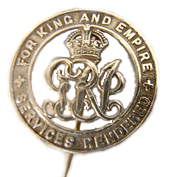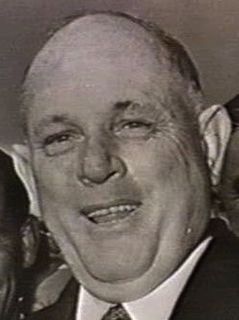The National Party of Australia is an Australian political party. Traditionally representing graziers, farmers, and rural voters generally, it began as the Australian Country Party in 1920 at a federal level. It would later briefly adopt the name National Country Party in 1975, before adopting its current name in 1982.
The Australia Party was a minor political party established initially in 1966 as the Liberal Reform Group. As the Australia Party they became influential, particularly in the landmark 1972 federal election when their preferences assisted the Australian Labor Party to victory – ending 23 years of Liberal/Country Coalition government.
The Bloc populaire canadien was a political party in the Canadian province of Quebec from 1942 to 1947. It was founded on September 8, 1942 by opponents of conscription during World War II. The party ran candidates at both federal and provincial levels.
Liberal-Progressive was a label used by a number of candidates in Canadian elections between 1925 and 1953. In federal and Ontario politics, there was no Liberal-Progressive party: it was an alliance between two parties. In Manitoba, a party existed with this name.

The 1917 Canadian federal election was held on December 17, 1917, to elect members of the House of Commons of Canada of the 13th Parliament of Canada. Described by historian Michael Bliss as the "most bitter election in Canadian history", it was fought mainly over the issue of conscription. The election resulted in Prime Minister Sir Robert Borden's Unionist government elected with a strong majority and the largest percentage of the popular vote for any party in Canadian history.
A political organization is any organization that involves itself in the political process, including political parties, non-governmental organizations, advocacy groups and special interest groups. Political organizations are those engaged in political activities aimed at achieving clearly-defined political goals, which typically benefit the interests of their members.

An Ontario electoral reform referendum was held on October 10, 2007, on the question of whether to establish a mixed member proportional representation (MMP) system for elections to the Legislative Assembly of Ontario. However, the resulting vote was strongly in favour of the existing plurality voting or "first-past-the-post" (FPTP) system.

The Silver Badge Party was an unofficial political movement which existed in the United Kingdom during and immediately after World War I. The Party consisted of several groups representing the political interests of former service personnel. It took its name from the Silver War Badge (SWB) that was issued to servicemen who had been invalided out of the forces.
Open-source governance is a political philosophy which advocates the application of the philosophies of the open-source and open-content movements to democratic principles to enable any interested citizen to add to the creation of policy, as with a wiki document. Legislation is democratically opened to the general citizenry, employing their collective wisdom to benefit the decision-making process and improve democracy.
There have been 102 women in the Australian Senate since the establishment of the Parliament of Australia. Women have had the right to stand for federal parliament since 1902, and there were three female candidates for the Senate at the 1903 federal election. However, it was not until Dorothy Tangney's victory at the 1943 federal election that a woman was actually elected. Since then, all states and territories have had multiple female senators – in chronological order: Western Australia (1943), Queensland (1947), Victoria (1950), South Australia (1955), Tasmania (1975), the Australian Capital Territory (1975), New South Wales (1987), and the Northern Territory (1998).

The Liberal Democratic Party is an Australian political party founded in Canberra in 2001. The party espouses smaller government and supports policies that are based on classical liberal and right-libertarian principles. The LDP is a registered party in the Australian Capital Territory, New South Wales, South Australia, Victoria and Western Australia and is also registered for federal elections with the Australian Electoral Commission. It also has a member of the Western Australian Legislative Council, Aaron Stonehouse, two representatives in the Victorian Legislative Council, Tim Quilty and David Limbrick, and elected representatives in some local governments.
Walter Jona was a Liberal Party member of the Victorian Legislative Assembly.
The Liberal Democratic Party (LDP) was an Australian political party that contested the 1943 federal election and the 1944 New South Wales state election.

The 1943 Victorian state election was held in the Australian state of Victoria on Saturday 12 June 1943 to elect 65 members of the state's Legislative Assembly.

The Aylesbury by-election, 1938 was a parliamentary by-election for the British House of Commons constituency of Aylesbury on 24 February 1938.
Radical Action was a political group within the British Liberal Party. It advocated for Liberal candidates to stand in elections despite the war-time electoral pact.

The Liberal Party of Australia , commonly known as the Tasmanian Liberals, is the state division of the Liberal Party of Australia in Tasmania. The party currently governs in Tasmania. The party is part of the federal Liberal Party of Australia which governs nationally in Coalition with the National Party of Australia.
The Citizens' Municipal Organisation (CMO), known before its expansion as the Citizens' Municipal Party (CMP), was an Australian political organisation that ran in local elections in the City of Brisbane.










